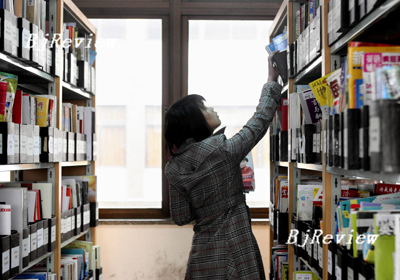
All for One and One for All
In China, it's quite common that for the same work, formally and informally employed workers will be paid differently. Sometimes the highest wage is tenfold higher than the lowest one. The unequal phenomenon is even more commonly seen in state-owned enterprises.
Same work and different pay is a legacy of the planned economy. In this transitional period, instead of waning away, the situation is becoming increasingly serious. It is affecting social equality and goes against the principle of efficiency first. The side effect of this unequal system is obvious. While curbing lowly paid workers' enthusiasm for work, it also makes highly paid workers develop a sense of superiority and then lose their ambition to work better, because no matter how much work they have done, their pay will never change.
When the payroll of an organization remains the same, to pay more to previous low-income earners will inevitably affect the current financial status of those in advantageous positions and we know that high-income earners always have more decision-making powers.
To reform the irrational income distribution system will inevitably encounter resistance and difficulties, but it's unwise to sacrifice social fairness and long-term development just for the interests of certain small groups.
Yanzhao Metropolis Daily
Public Has a Right to Use Uni Libraries
During this year's summer break, it is reported only a few university libraries in Beijing and Shanghai are partly and conditionally opened to the public at certain times.
However, higher learning institutions are built with public funds, which are actually taxpayers' money. In this sense, universities should not treat cultural and sports facilities as private property. Apart from routine teaching tasks, it's necessary for these facilities to be opened to the public, whose paid taxes make it possible for universities to possess these facilities in the first place.
Chinese universities should learn from some Western counterparts, that is, to totally open their libraries to outside readers and make it possible for them to enjoy the same rights as university students, apart from borrowing books.
It's important to fully utilize the social function of university libraries, so that they can benefit more people and the public can enjoy the valuable resources for which they indirectly pay.
Guangzhou Daily
Toll Fees Lining Pockets?
According to a recent report of the National Audit Office, 35 tolled highways in 12 provinces (municipalities) have already collected fees 10 times higher than the original construction cost.
For years, toll fees have been collected with the excuse that the income will be used to pay off the debt of road construction. But, in how many cases are these fees really used for debt payment? A typical example is in southeast China's Guizhou Province. Until 2001, though the collected toll fees on a local highway had already been 4 times its original cost, the debt was still not paid off and the toll fees remained.
Roads are supposed to belong to the people. If people have to continually pay for their travels on the roads, are roads still public? Given China's national economic condition, the public is not opposed to the idea of using road toll fees to pay off debt for construction. However, the management of the funds must be transparent. The public has the right to know why road toll fees have to be charged indefinitely.
The Beijing News
Quality Inspectors Should Target Real Problem Areas
The General Administration of Quality Supervision Inspection and Quarantine recently issued a regulation requiring food processing workshops to make a public commitment that they will never sell their products in supermarkets and shopping centers. The question is why this rule was made?
Usually, if inferior-quality food is found in big supermarkets or shopping centers, quality regulators will have to take responsibility for it, but if the incidents occur in Mom and Pop shops, they can say they are understaffed to handle every small outlet.
The obligation for quality regulators is to offer equal and fair service to the public: fair to different enterprises and fair to consumers. However, the provision that food produced in small workshops is forbidden to enter supermarkets seriously damages this equality and fairness. This is also discrimination against small workshops, among which are many legal and standard producers; and those who buy food outside supermarkets should also be protected.
Many remote places in the countryside have become havens for fake and low-quality products. Shops there sell all kinds of substandard food. It is in these areas that quality regulators should be operating, instead of announcing the ban on small workshops.
Modern Express | 